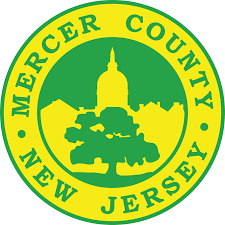Mercer County Freeholders will officially be known as county commissioners come 2021, after Gov. Phil Murphy recently signed state legislation (S855) eliminating the title.
State officials had signaled the potential elimination of the term freeholder since July with Murphy making the phasing out of the term official on Aug. 21. Mercer County’s title of freeholder officially becomes commissioner on Jan. 1, 2021, along with the state’s other 20 counties.
The bill also requires all boards of chosen freeholders to be known as boards of county commissioners within one year of Jan. 1, 2021. However, the signed legislation would not require Mercer County to update or replace signs or other writings by Jan. 1 if doing so requires county funds. They can be updated the next time they need to be replaced.
“I had reconciled myself to the change. Freeholders themselves are talking to each other and starting to call each other commissioners to get used to the new name,” Mercer County Freeholder Chairman Andrew Koontz said. “We have been calling each other commissioner on occasion to give the new title a whirl.”
New Jersey had been the only state across the country to still use the term freeholder as the title for elected officials running county government. County officials in other states are called county commissioners.
“The term freeholder is an exclusionary term. When you look at the origins of it, it means a person that owns property without any other debt,” Koontz said. “That used to be a qualification you needed to have in order to vote in the state a long time ago. It dates back to a time when the right to vote was only given to certain people, generally White males, who owned property.”
The Old English term freeholder refers to an individual who owned an estate or land, free of debt, according to Mercer County’s website.
“I applaud the effort of our governor and state legislature to immediately break ties with this obsolete terminology that was born out of exclusivity, misogyny, racism and privilege. This shift in thinking shows many people are beginning to recognize that words have meaning and names have power,” Mercer County Freeholder Vice Chairman Samuel Frisby said. “A name is not just a name, it tells people who you are, and freeholders are not who we are nor how I want to be remembered. This is a good beginning, but there is much work to be done on our Justice, Equity, Diversity and Inclusion (JEDI) journey.”
Freeholder John Cimino said the title change was long overdue and has some real undertones and connotations that have no place today.
“Being an elected Mercer County freeholder, there has been a lot of confusion around exactly what that title meant, a lot unknown to our constituents,” he said. “I do think a change in title to a county commissioner helps people better understand the role specifically and what a county commissioner does. On another level, the meaning and the connotation of a freeholder no longer has any place in our society. It, for quite some time, has not had a place in society.”
Freeholder Nina Melker also supports the change in name to commissioner.
“With New Jersey being the only state in the union to still use a term which dates back to the colonial age to designate a White male who owned an estate or land free and clear, certainly does not represent me as a female, my colleagues on our board, or countless other elected women and elected officials of color who are dedicated to their respective counties and the citizens they serve,” she said. “My hope is that by changing the name of elected representatives from freeholder to county commissioner it will be an important step toward making county government more transparent.”
Melker added that she also hopes it helps make residents more aware of who their county representatives are and the important services and programs provided by county government.
Freeholder Ann Cannon considers this a small step toward a more equitable society.
“Since I was first elected as freeholder in 1994, I always felt that the title didn’t necessarily reflect myself or many of my colleagues–both past and present and Democrat and Republican alike. While this is a very small step towards a more equitable society, it is an important step nonetheless,” she said. “I hope this change signals to all of New Jersey’s residents that they too are welcome to run for this office and serve their fellow citizens without the stain of our troubled and unequal history in their official title.”
Freeholder Lucylle Walter said she was never one for titles.
“I will focus on the work to do and let others decide what I should be called. All governmental titles were meant for someone other than myself or many of my colleagues. Senator comes from the Latin root meaning “old man”. How many county executives are female or of race other than White? Government is heavily based in the concept of White men rule,” she added. “To change the title does not change that, but it is a start. The best persons for the office is where we need to focus our energy regardless of race, sex or any other exterior facade, to paraphrase Martin Luther King … judge on the content of a person’s character.”

